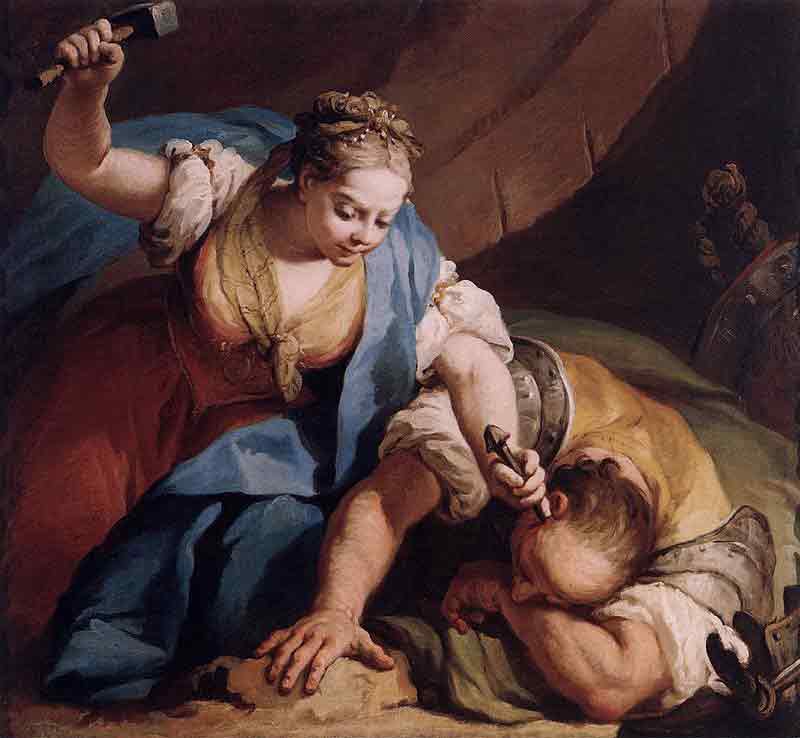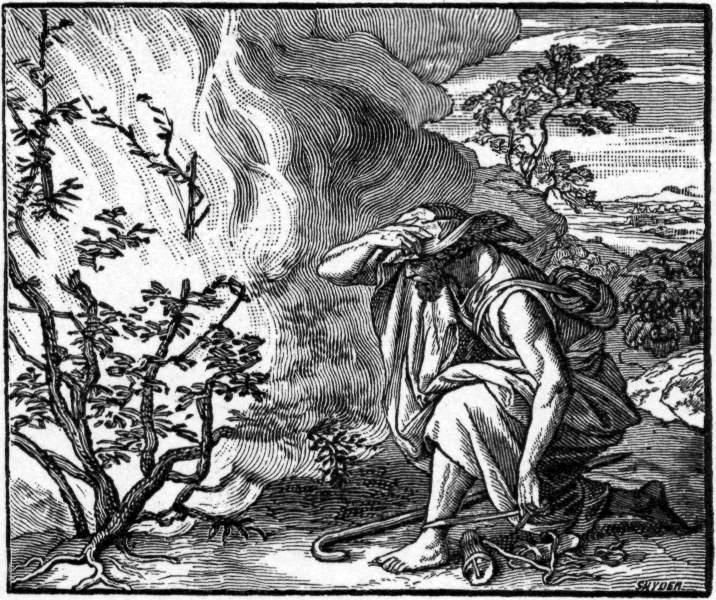
The history of the Jews makes one particular fact very clear that the Israelites were invincible till the time they believed in God and strictly adhered to the principles and the tenets lay down by Him. Whenever in the battlefield the Israelites proved insufficient in any way whatsoever, God provided them with power and ensured that they emerged victorious. The reign of Joshua is a striking example of it. But every time the Israelites went against the principles of their religion, every time they turned their backs to their religious tenets, they had to face dire adversities.
And history repeated itself during the last days of Ehud, the second Judge. This time the Philistines attacked Canaan and enslaved the Israelites. Ehud by now had grown very old. This was the time when a brave Israelite named Shamgar came forward for the protection of the Jews. He was the third ‘Judge’!
With an ox goad, Shamgar alone killed 600 of the invaders, defeated the Philistines and freed the Israelites from their slavery. This is all that is available by way of historic references about Shamgar. His period is considered to be a part of Ehud’s.

However after the death of Ehud the Israelites went back to committing the same mistakes again and the result too was naturally the same. This time the King Jabin of Hazor, an oppressive ruler, attacked the Israelites. For victory Jabin depended largely on Sisera, who was the commander of Jabin’s army. Sisera was a brave and valiant leader and had armed Jabin’s army with iron chariots and weapons. He had no match, at least not in that region. Moreover, Sisera was no less oppressive, ruthless and brutal than Jabin.
For the following 20 years, Jabin with the help of Sisera, terrorized the Israelites and subjected them to terrible atrocities. Their terror was such that many Israelites fled their homes and villages and took refuge in woods and mountains. Their anguished cries for help did reach God.
And God did help. This time He sent a new Judge for their help. Moreover, she was a woman and not a man as was the practice until then. She was Deborah, from the Naphtali tribe. She lived in Ephraim, the land situated between Ramah and Bethel. She was completely committed to God and while a growing number of Israelites were taking to polytheism, she followed the Torah and other Israelite religious principles. In fact, she had already been looked upon as a prophetess.

Beneath a date palm tree, she would pronounce her judgments and help to resolve disputes among the Israelites in accordance with the directions she received from God. The Jews, who respected her, considered her word to be final.
Deborah was well-aware of the atrocities that Jabin was committing but at the back of her mind she was also aware that the Israelites had only themselves to blame for the state they found themselves in. After all it was due to their own vices of not following their religion and its principles, and worshipping Gods other than their own that they had invited disaster.
On receiving instructions from God, she began her work. To start with, she sent a message to Barak, the son of Abinoam, informing him that he was selected by God to free the Israelites from the clutches of Jabin’s slavery. She commanded him to muster ten thousand troops of Naphtali and Zebulun tribes and head with them for Mount Tabor. She assured them that God would take their care during the battle. Barak, aware of Deborah’s high spiritual stature, did agree but on one condition. He would go only if she accompanied him. Deborah consented.

On knowing about the rebellion, Sisera readied his iron chariots and prepared for an assault on the Israelites. Mount Tabor assumed extreme strategic importance and the one who held sway over it would score over enemies, so it was believed. This was the very reason why Deborah had commanded Barak to go for Tabor first and this also was the reason why Sisera first went for the Israelites in a bid to stop them from taking over Tabor.
The two armies clashed and a fierce battle ensued. The Canaanites took an initial lead in the war but God sent rain and made the Kishon River flood this plateau region. Sisera’s chariots got stuck in the mud created by the rains, hindering seriously, their movement, so says the story. As a result, each and every soldier of Sisera was killed and his chariots too were destroyed. Alone now, Sisera ran for his life.
Even though all of Sisera’s troops had been killed, Deborah and Barak were aware that they had not really steered clear of danger as such. Sisera, by himself did spell threat to the Israelites and would surely surface sooner or later. Hence they dispatched a select team of soldiers in search of him. Sisera who fled the battle went straight to Haber and pleaded for refuge at the house of an acquaintance. But Yael, the wife of Sisera’s acquaintance, favoured the Israelites. She was well aware of the threat he meant and in fact had nothing but abhorrence for Sisera’s atrocities. Not allowing any of her feelings to show on her face and wearing a welcome smile for her guest, she directed him to a room where he thought he could hide. Tired yet assured, Sisera went to sleep within no time. Then mustering all her strength Yael drove a tent peg through his temple with a mallet. Sisera died instantly. She then sent for Barak and handed over Sisera’s body to him.

Thus God once again pulled the Israelites out of a major adversity, this time with help of Barak. For their victory, Deborah composed a song in praise of God which is part of the Bible and is known as the ‘Song of Deborah’.
She then led the Israelites for the forty years that followed – a period that really was peaceful for them. (To be continued…)












